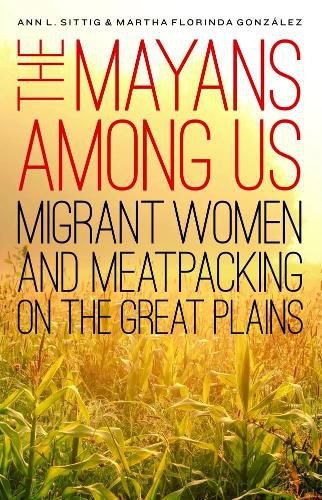Readings Newsletter
Become a Readings Member to make your shopping experience even easier.
Sign in or sign up for free!
You’re not far away from qualifying for FREE standard shipping within Australia
You’ve qualified for FREE standard shipping within Australia
The cart is loading…






The Mayans Among Us conveys the unique experiences of Central American indigenous immigrants to the Great Plains, many of whom are political refugees from repressive, war-torn countries. Ann L. Sittig, a Spanish instructor, and Martha Florinda Gonzalez, a Mayan community leader living in Nebraska, have gathered the oral histories of contemporary Mayan women living in the state and working in meatpacking plants. Sittig and Gonzalez initiated group dialogues with Mayan women about the psychological, sociological, and economic wounds left by war, poverty, immigration, and residence in a new country. Distinct from Latin America’s economic immigrants and often overlooked in media coverage of Latino and Latina migration to the plains, the Mayans share their concerns and hopes as they negotiate their new home, culture, language, and life in Nebraska. Longtime Nebraskans share their perspectives on the immigrants as well.
The Mayans Among Us poignantly explores how Mayan women in rural Nebraska meatpacking plants weave together their three distinct identities: Mayan, Central American, and American.
$9.00 standard shipping within Australia
FREE standard shipping within Australia for orders over $100.00
Express & International shipping calculated at checkout
The Mayans Among Us conveys the unique experiences of Central American indigenous immigrants to the Great Plains, many of whom are political refugees from repressive, war-torn countries. Ann L. Sittig, a Spanish instructor, and Martha Florinda Gonzalez, a Mayan community leader living in Nebraska, have gathered the oral histories of contemporary Mayan women living in the state and working in meatpacking plants. Sittig and Gonzalez initiated group dialogues with Mayan women about the psychological, sociological, and economic wounds left by war, poverty, immigration, and residence in a new country. Distinct from Latin America’s economic immigrants and often overlooked in media coverage of Latino and Latina migration to the plains, the Mayans share their concerns and hopes as they negotiate their new home, culture, language, and life in Nebraska. Longtime Nebraskans share their perspectives on the immigrants as well.
The Mayans Among Us poignantly explores how Mayan women in rural Nebraska meatpacking plants weave together their three distinct identities: Mayan, Central American, and American.